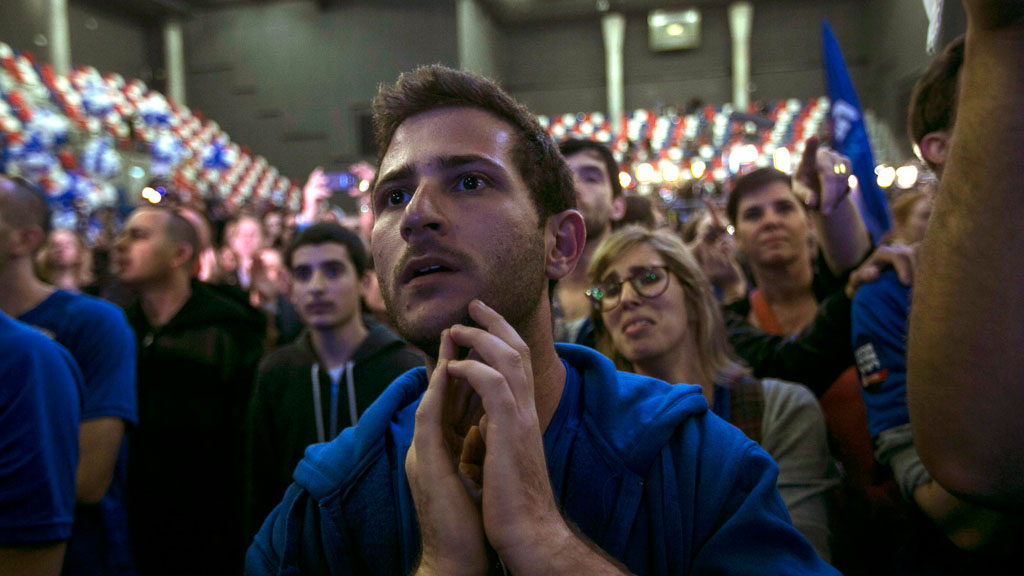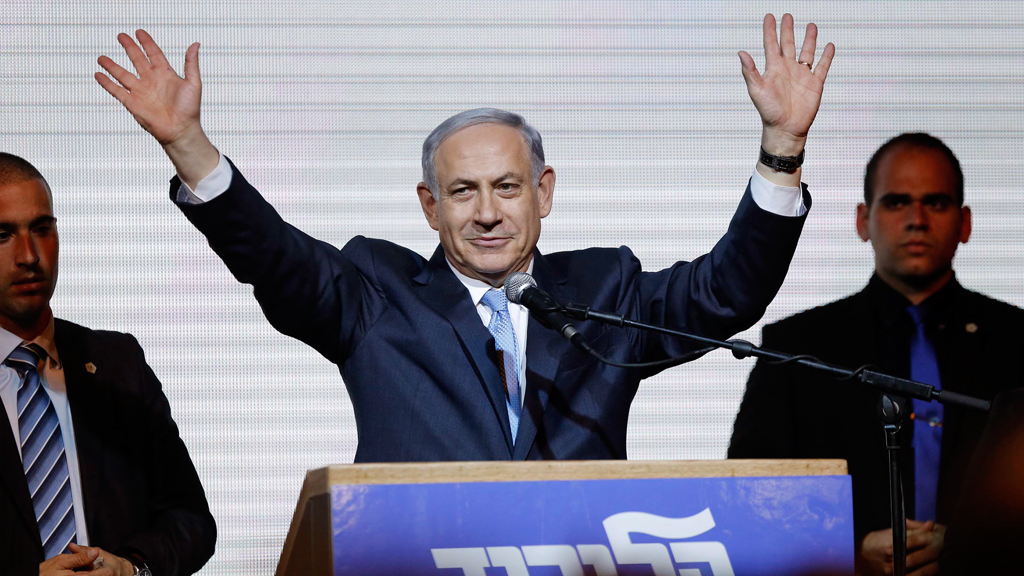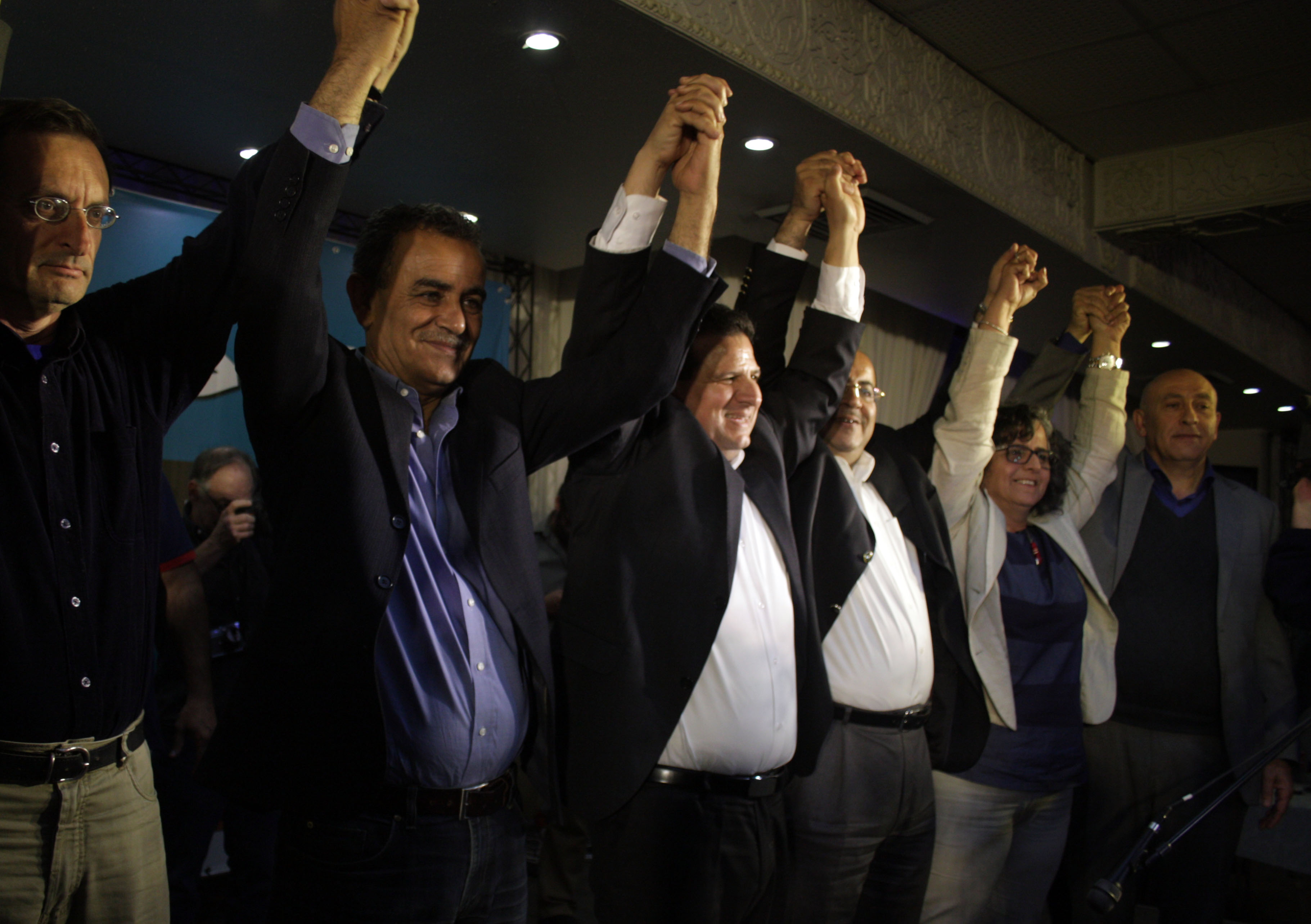Disillusionment and hope

The dust has all but settled over this week's Israeli elections. Before last Tuesday, 17 March, when Israel went to the polls, it seemed possible that the country would see a change of leadership. The last polls, four days before the election, had put the Zionist Union – an alliance between the Labour party of Isaac Herzog and Hatnua, a smaller party led by former justice minister and lead peace negotiator Tzipi Livni – in the lead. Exit polls saw the Union neck and neck with incumbent Prime Minister Benjamin Netanyahu's Likud. By the following morning, most votes had been counted and Netanyahu looked set for another four-year term, having won 30 seats against the Zionist Union's 24.
Netanyahu had called for early elections last December, two years before they were due, after firing two centrist ministers in the ruling coalition. Voter turnout stands at 71.8 per cent, the highest since 1999 and up from 67.8 per cent in the 2013 election.
4.55 million Palestinians in the West Bank and Gaza Strip are considered as living under the jurisdiction of the Palestinian Authority and cannot vote. Interest in the Israeli elections was at an all-time low in the Palestinian Territories throughout a campaign that made close to no mention of the recent Gaza war or of any resolution to the conflict – until two days before the polls, when Netanyahu announced that if re-elected, he would not allow the creation of an independent Palestinian state, backtracking on his own six-year policy.

Overwhelming disillusion
But while the Palestinian leadership still believed (although not openly declared) that the Oslo Accords could still become a real peace process with a different government in power, disillusion was the overwhelming feeling on the Palestinian streets, resulting in indifference about the elections' outcome.
"I don't care who won because I don't belong to them. Whoever is in power, the same thing will happen again: war, no peace, the economy will collapse," said Randi Farid, a 24-year-old day labourer, in a shisha bar in Ramallah the day the results were published. He voiced the opinion of many in the de-facto capital of the West Bank. Since last January, Israel has been withholding more than $100m in taxes it collects each month on behalf of the Palestinian Authority, with a devastating effect on the economy.
"I am not surprised by the results," said Rami Saleh, director of the Jerusalem Legal Aid and Human Rights Center branch in Jerusalem. Like other Palestinians from East Jerusalem, he is considered a permanent resident and not a citizen of Israel, and as such had no right to vote in the elections.
"I think that the situation itself will escalate in terms of violations against Palestinians – house evictions, land confiscations, expanding the settlements in the West Bank – all these will increase, and residents of East Jerusalem will be negatively affected. But it is clear that the Palestinian Authority (PA) will no longer be able to say they have a partner to negotiate with, as they would have been able to do if the left coalition had won. Our political leaders are now in a corner, and will have to react accordingly," he said.

Call for the support of the international community
PLO Executive Committee Member and chief Palestinian negotiator Dr Saeb Erekat said in a statement on Wednesday that "the results of the Israeli elections show the success of a campaign platform based on settlements, racism, apartheid and the denial of the fundamental human rights of the Palestinian people. Such a result would not have been possible had the international community held Israel to account for its systematic violations of international law." He called for the international community to support Palestinian efforts to hold Israel accountable through the International Criminal Court and international institutions.
In an interview with the "New York Times" later in the week, a senior White House official said that the Obama administration might be open to support a UN Security Council resolution that would prepare the ground for a two-state solution based on Israel's 1967 borders. "We are now in a reality where the Israeli government no longer supports direct negotiations," the official told the NYT, referring to Netanyahu's statement. "Therefore we clearly have to factor that into our decisions going forward."
The Joint Arab List: seeds of hope
Israel's decisive shift to the right also forced Palestinian citizens of Israel into a corner – long before the election results were announced. In March, the Israeli Knesset passed a law that raised the electoral threshold to 3.25 per cent, meaning that any party must win at least four seats in order to enter the Knesset.
This prompted four parties – an unprecedented alliance between Arab-Jewish progressive leftists, Islamists and Palestinian nationalists – to run on a joint ticket. With 14 seats in the Knesset, the Joint Arab List led by Ayman Odeh of the Hadash party, is now the third largest force in Israeli politics. On election night, as hundreds of thousands of left-wing Israelis were giving in to defeat in Tel Aviv, at the Joint List's headquarters – a rented hall in Nazareth's industrial district – supporters and candidates still had good reason to celebrate.

"The Arab List is a slap in the face of the whole discourse of separation that has been promoted by Lieberman [current foreign minister and head of the Yisrael Beiteinu party] and Netanyahu. The Arab communities are reaching out to the Jewish public to change the discourse in this country, to build peace based on real equality and real participation," said Jafar Farah, director of the Mossawa advocacy centre for Arab citizens in Israel and a supporter of the list.
Although Palestinians didn't "vote in droves" as Netanyahu warned on election day in a last, controversial bid to encourage right-wing voters to show up at the polls – some Arab towns and villages across Israel saw increased voter participation. Even those who still decided to boycott the elections tend to see the unprecedented unity as a positive new development.
"The Joint List and its unity should be a lesson to us here in the Occupied Territories," Mustafa Barghouti, president of the Palestinian National Initiative in the West Bank, told Qantara.de. "This is the first time that an Israeli government goes so far in advocating racism and a country of apartheid, and it's unfortunate that this is the choice the Israeli public has made," he argued. "If they continue to bury the two-state option, we will have to declare a different strategy – perhaps this could be a one-state option. Meanwhile, the challenge is in front of the United States and European countries. If they really mean what they say about a two-state solution, it is their obligation now to pressure Netanyahu. And the least they can do is to immediately recognise Palestine as an independent state."
Ylenia Gostoli
© Qantara.de 2015
